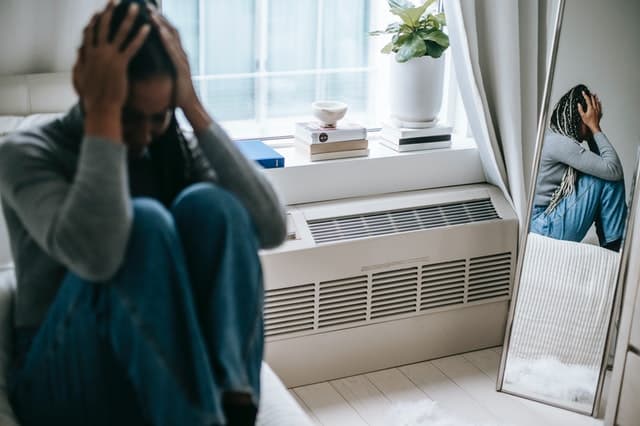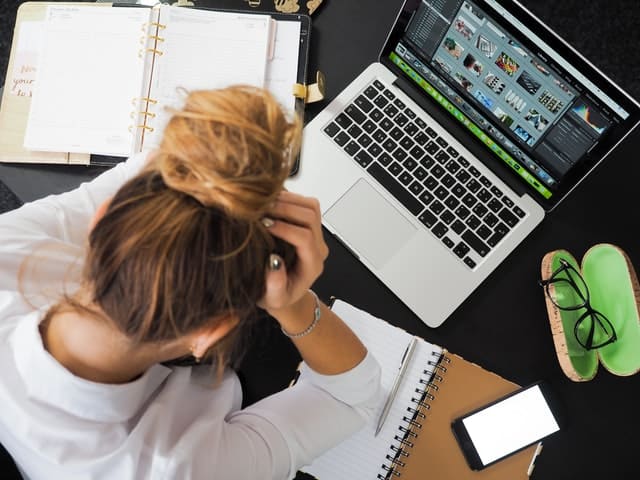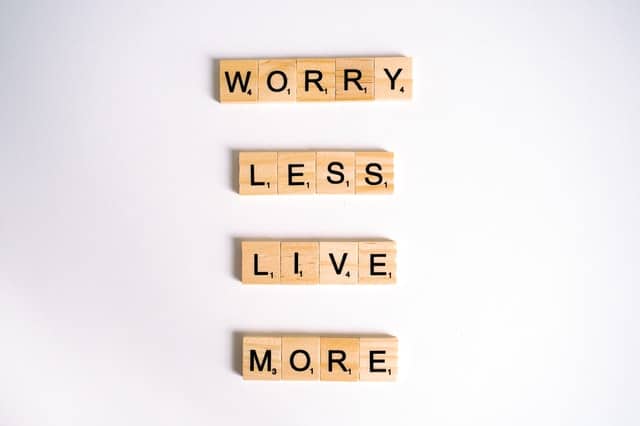How to recognize anxiety in yourself
Anxiety has been termed as one of the top mental health issues globally. Anxiety does not easily show itself. You could be struggling with anxiety but are hardly aware.
Here are some ways you can recognize anxiety in yourself and seek help.
Memory issues
 Do you often forget to do some important tasks in your day? Or simply you put something somewhere and forget all about it. The common one is getting into the store to get something and completely forget what you came for? This kind of forgetfulness could be caused by anxiety. When you are anxious, your mind is hardly in the present and you tend to do a lot of things on autopilot. The remote in the fridge? Or an important document in the trash? These could be signs of anxiety. You can start paying attention to these signs, recognize anxiety in yourself and find solutions on how to deal with it.
Do you often forget to do some important tasks in your day? Or simply you put something somewhere and forget all about it. The common one is getting into the store to get something and completely forget what you came for? This kind of forgetfulness could be caused by anxiety. When you are anxious, your mind is hardly in the present and you tend to do a lot of things on autopilot. The remote in the fridge? Or an important document in the trash? These could be signs of anxiety. You can start paying attention to these signs, recognize anxiety in yourself and find solutions on how to deal with it.
Overthinking
 Overthinking is often a trigger to anxiety. It also happens that when you are anxious you overthink as well and the cycle continues. When you are anxious, you tend to think of different things that could go wrong in a situation. The more you think about this, the more anxious you become. Do you find yourself overthinking every little detail? Do you find yourself playing out a worst-case scenario for every situation? This is a sign of anxiety and it can rob you of the joy of enjoying your life.
Overthinking is often a trigger to anxiety. It also happens that when you are anxious you overthink as well and the cycle continues. When you are anxious, you tend to think of different things that could go wrong in a situation. The more you think about this, the more anxious you become. Do you find yourself overthinking every little detail? Do you find yourself playing out a worst-case scenario for every situation? This is a sign of anxiety and it can rob you of the joy of enjoying your life.
Avoidance
 When we are anxious, we tend to avoid situations that make us uncomfortable. For example, if you have a task that you think you will not be good at, you tend to postpone it or avoid it altogether. For instance, I could have avoided writing this article for the longest time, fearing that I will not be good at it. This is anxiety showing itself in the form of avoidance. When you find that you are avoiding a task, a situation, or a person, chances are they make you uncomfortable and you choose to stay away.
When we are anxious, we tend to avoid situations that make us uncomfortable. For example, if you have a task that you think you will not be good at, you tend to postpone it or avoid it altogether. For instance, I could have avoided writing this article for the longest time, fearing that I will not be good at it. This is anxiety showing itself in the form of avoidance. When you find that you are avoiding a task, a situation, or a person, chances are they make you uncomfortable and you choose to stay away.
Sweating
 When you are nervous about something, you are likely to sweat more than usual. When you realize that you are sweating unusually, this is a sign of anxiety and it can help you address what you are being anxious about. You may observe excessive sweating, a bit of shivering even when it is warm, all of which is anxiety destabilizing your bodily functions.
When you are nervous about something, you are likely to sweat more than usual. When you realize that you are sweating unusually, this is a sign of anxiety and it can help you address what you are being anxious about. You may observe excessive sweating, a bit of shivering even when it is warm, all of which is anxiety destabilizing your bodily functions.
Stomach issues

Anxiety can lead to the production of excessive gas for your stomach. When you don’t address the issue you are anxious about, you can easily develop stomach issues whereby excess acid production can hurt the lining of your stomach. In such a case, it is wise to address the issue before it hurts you to a point of developing ulcers. If the issue bringing you anxiety is beyond your control, consider distracting yourself so that you don’t dwell on it too much.
Panic
 In some cases, your anxiety can cause panic attacks. This is where you feel that things are beyond your control to a point where it affects your breathing. Panic attacks are common for many who struggle with anxiety. If you find yourself in a situation of panic, take a moment to slow down and try to breathe in and out. This movement of air in and out of your lungs can help you calm down and refocus.
In some cases, your anxiety can cause panic attacks. This is where you feel that things are beyond your control to a point where it affects your breathing. Panic attacks are common for many who struggle with anxiety. If you find yourself in a situation of panic, take a moment to slow down and try to breathe in and out. This movement of air in and out of your lungs can help you calm down and refocus.
Needing reassurance
A nxious people tend to lose confidence in themselves. When you are anxious, you tend to think you are not really good at what you do and need reassurance often. When you find that you are constantly seeking reassurance in situations you would otherwise be comfortable in, chances are, you are being anxious and need to address it.
nxious people tend to lose confidence in themselves. When you are anxious, you tend to think you are not really good at what you do and need reassurance often. When you find that you are constantly seeking reassurance in situations you would otherwise be comfortable in, chances are, you are being anxious and need to address it.
Procrastination
 As I mentioned earlier, one of the signs of anxiety is avoidance. When you are anxious about something, or a task such that you think you will not be good at it, you tend to postpone it. This causes procrastination. I have written before about how procrastination is simply you choosing to be comfortable in the known because the unknown is making you anxious. When you are constantly procrastinating, consider that maybe you are uncomfortable and anxious about the situation and seek ways to address that.
As I mentioned earlier, one of the signs of anxiety is avoidance. When you are anxious about something, or a task such that you think you will not be good at it, you tend to postpone it. This causes procrastination. I have written before about how procrastination is simply you choosing to be comfortable in the known because the unknown is making you anxious. When you are constantly procrastinating, consider that maybe you are uncomfortable and anxious about the situation and seek ways to address that.
Headaches
 Headaches are symptoms of many health and mental issues, and one of those is anxiety. When you are anxious, you are likely to be overthinking about a situation and this can cause you anxiety. When you are getting some unexplained headaches and any medical causes have been ruled out, consider looking into your life and recognize if something is making you anxious.
Headaches are symptoms of many health and mental issues, and one of those is anxiety. When you are anxious, you are likely to be overthinking about a situation and this can cause you anxiety. When you are getting some unexplained headaches and any medical causes have been ruled out, consider looking into your life and recognize if something is making you anxious.
Rapid heartbeat
 Sometimes you may feel as if your heart is beating out of your chest. Unfamiliar and uncomfortable situations can cause such a feeling and it is one of the indications of anxiety. The rapid heartbeat may be an indication that you are dreading what is about to happen and the suspense is a bit too much for you.
Sometimes you may feel as if your heart is beating out of your chest. Unfamiliar and uncomfortable situations can cause such a feeling and it is one of the indications of anxiety. The rapid heartbeat may be an indication that you are dreading what is about to happen and the suspense is a bit too much for you.
Insomnia
 Insomnia can be a sign of anxiety. It can also be a trigger of anxiety. Have you ever had something huge taking place the following day and you can hardly get a wink of sleep? This is exactly what happens in cases of anxiety. When you are unaware of the future and nervous about it, you can struggle with sleep and experience insomnia. If you are struggling with insomnia, consider that it may be a result of anxiety and seek a way to address it.
Insomnia can be a sign of anxiety. It can also be a trigger of anxiety. Have you ever had something huge taking place the following day and you can hardly get a wink of sleep? This is exactly what happens in cases of anxiety. When you are unaware of the future and nervous about it, you can struggle with sleep and experience insomnia. If you are struggling with insomnia, consider that it may be a result of anxiety and seek a way to address it.
Constant worrying
 Overthinking leads to constant worrying, and it can be an indication of anxiety or a trigger of anxiety. When you constantly worry, it is clear that the unknown does not settle well with you and you would rather be in situations where you know what is going to happen. If you find yourself constantly worrying and playing imaginary situations in your mind, chances are you are struggling with anxiety.
Overthinking leads to constant worrying, and it can be an indication of anxiety or a trigger of anxiety. When you constantly worry, it is clear that the unknown does not settle well with you and you would rather be in situations where you know what is going to happen. If you find yourself constantly worrying and playing imaginary situations in your mind, chances are you are struggling with anxiety.
Lack of patience
 When you are anxious, you are likely to be distracted. Your flow of thoughts is here and there and you tend to find others irritating. You are likely to snap at others, be irritable, and lack patience when you are anxious.
When you are anxious, you are likely to be distracted. Your flow of thoughts is here and there and you tend to find others irritating. You are likely to snap at others, be irritable, and lack patience when you are anxious.





